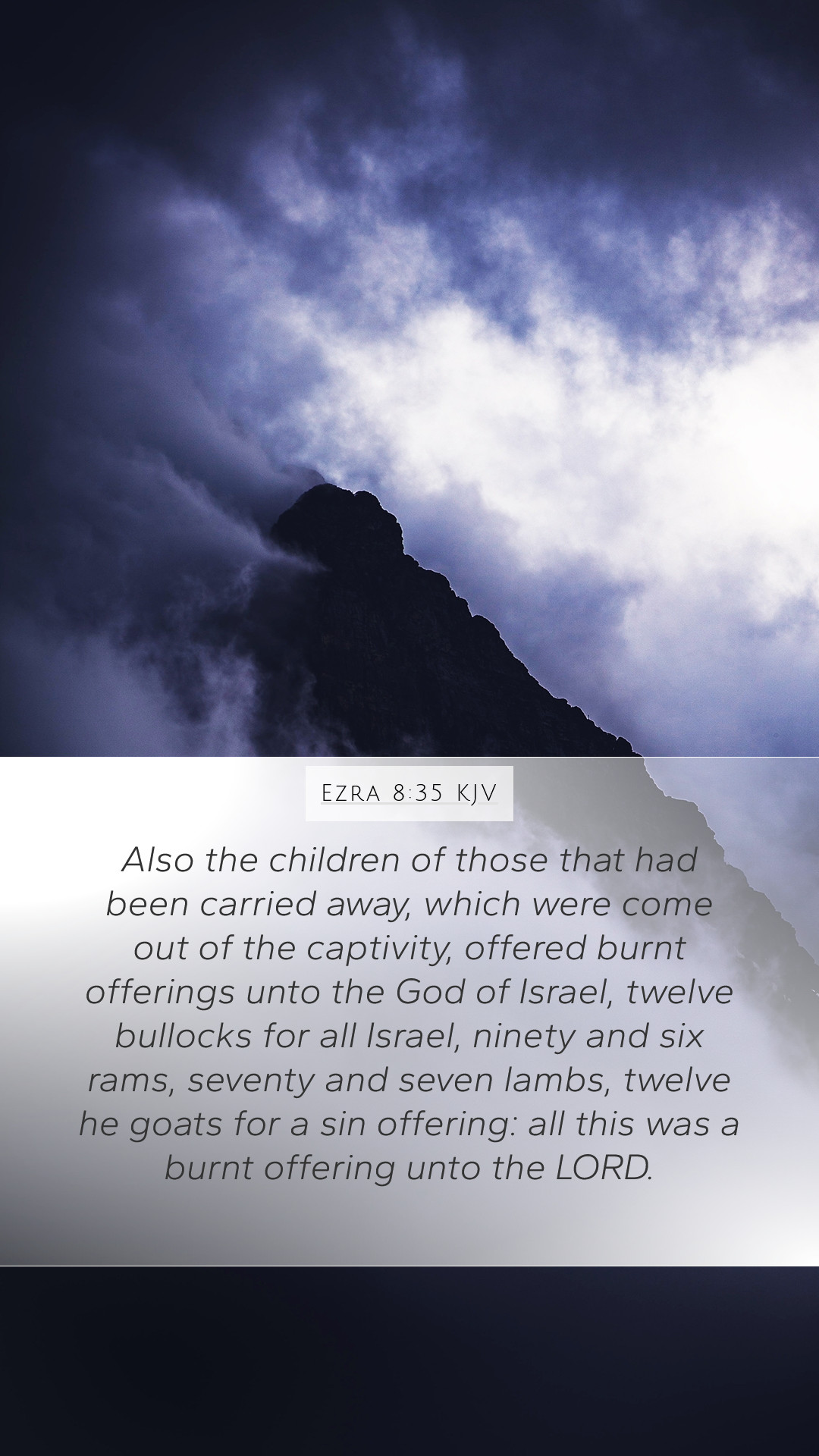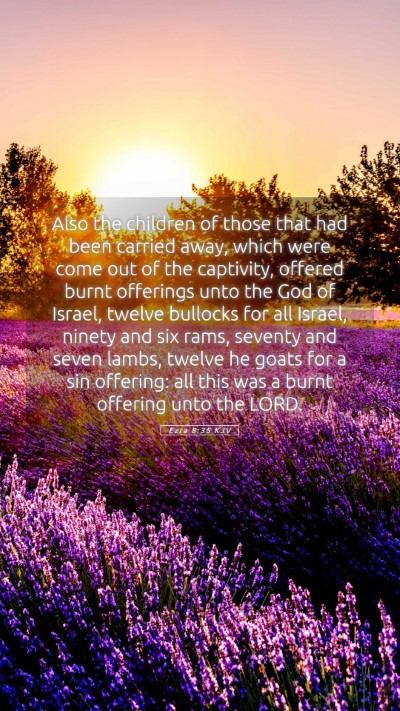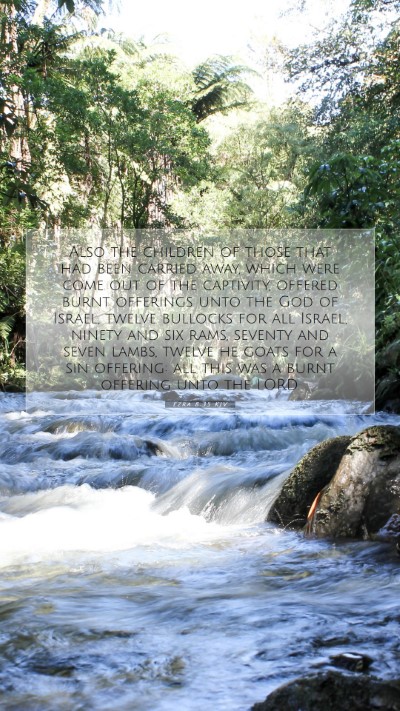Bible Verse Meaning: Ezra 8:35
Ezra 8:35 presents a significant moment in the Biblical narrative where the returning exiles from Babylon present their offerings to the temple. This verse illuminates the themes of restoration and worship, connecting the physical return to their homeland with spiritual renewal. Here, we will explore the Bible verse meanings drawn from public domain commentaries, such as those by Matthew Henry, Albert Barnes, and Adam Clarke.
Verse Text
“Also the children of those that had been carried away, which were come out of the captivity, offered burnt offerings unto the God of Israel, twelve bullocks for all Israel, ninety and six rams, seventy and seven lambs, twelve he goats for a sin offering: all this was a burnt offering unto the Lord.”
Contextual Analysis
This verse is situated within the context of Ezra’s mission to restore the Jewish nation after their return from Babylonian exile. The offerings reflect both obedience to the Law and communal unity as a renewed people of God. The offerings detail a blend of worship and atonement that signify their commitment to God.
Key Themes
- Restoration: The offerings demonstrate a return to the covenant relationship with God.
- Worship and Sacrifice: The significance of sacrificial offerings highlights the importance of worship in acknowledging God's sovereignty.
- Community Participation: The collective nature of the offerings emphasizes the unity among the returning exiles.
Commentary Insights
Matthew Henry's Commentary
Matthew Henry emphasizes that the offerings made by the exiles symbolize their acknowledgment of God's mercy and their gratitude for being able to return to Jerusalem. He notes that the number of offerings (twelve bullocks, etc.) relates to the twelve tribes of Israel, representing the entirety of the nation. The act of offering signifies their readiness to worship and serve God.
Albert Barnes' Commentary
Albert Barnes comments on the significance of the types of sacrifices offered. He elaborates on how burnt offerings are meant for atonement, and their quantitative measure indicates a serious and sincere commitment to God. Barnes stresses that these acts of worship were essential for restoring their relationship with God, annotating that such acts were not just ritualistic but also deeply meaningful expressions of faith.
Adam Clarke's Commentary
Adam Clarke adds depth by explaining the symbolism behind each type of offering. He points out that the varied offerings catered to different aspects of worship, including thanksgiving and sin atonement. Clarke highlights that the returning exiles were intent on fulfilling their obligations as per the Mosaic Law, thereby solidifying their identity as God's chosen people.
Application of the Verse
The verse calls modern readers to reflect on their own practices of worship and contribution to their faith communities. It serves as a reminder that acts of worship should express gratitude, obedience, and a communal spirit.
Importance in Biblical Study
Understanding this verse is crucial for Bible study groups and individuals engaging in online Bible study. Such passages provide a foundation for exploring the significance of worship in both ancient and contemporary times.
Cross References
- Leviticus 1:1-17: Instructions on burnt offerings
- Deuteronomy 12:6: Bringing offerings to the designated place of worship
- Nehemiah 12:43: Celebration and offerings during the wall’s completion
Conclusion
Ezra 8:35 beautifully encapsulates a moment of spiritual renewal and community restoration. Through the insights gathered from various commentaries, we enhance our Bible verse understanding and foster a deeper appreciation of the meanings of Bible verses related to worship and sacrifice. By engaging in such Bible study insights, we can apply the principles of this ancient text to our modern lives, encouraging personal growth and communal responsibility.


